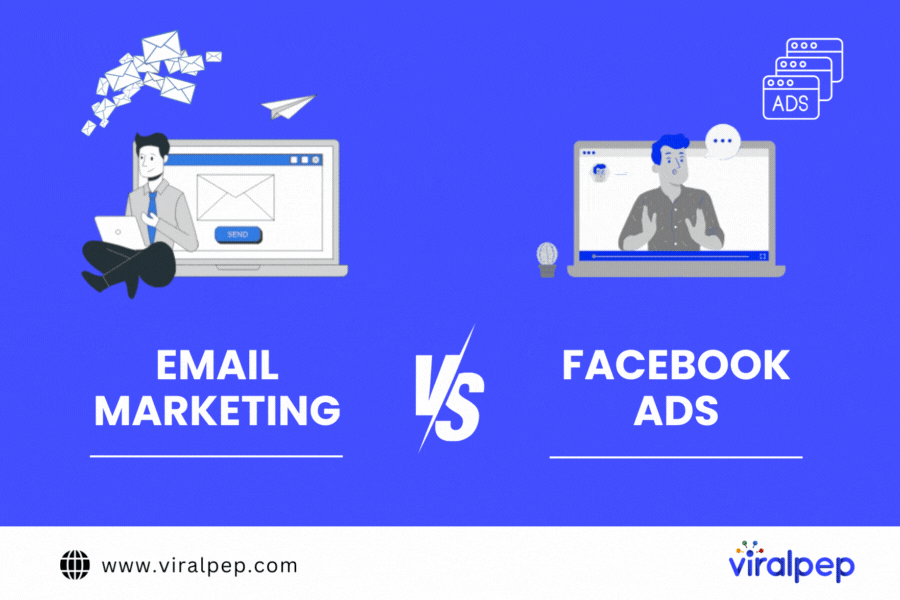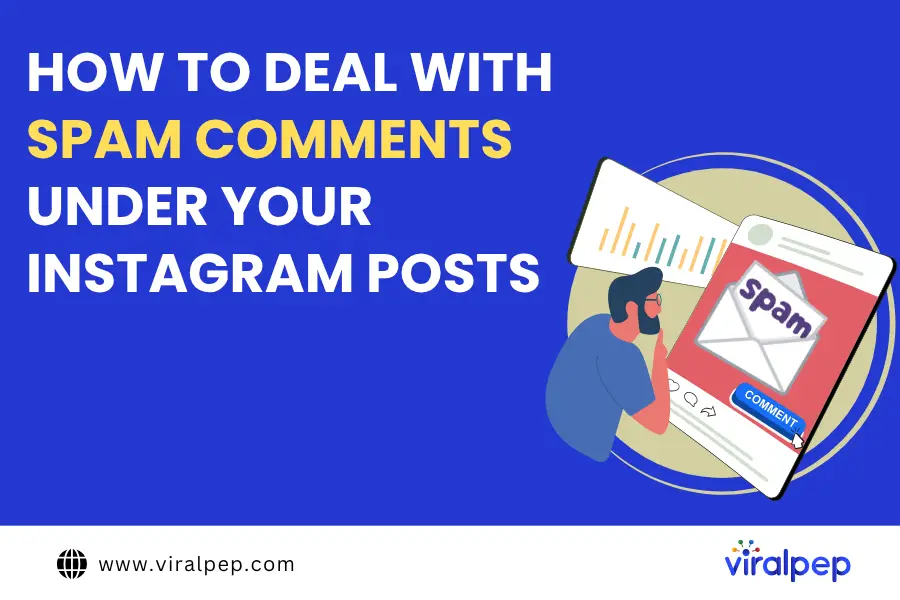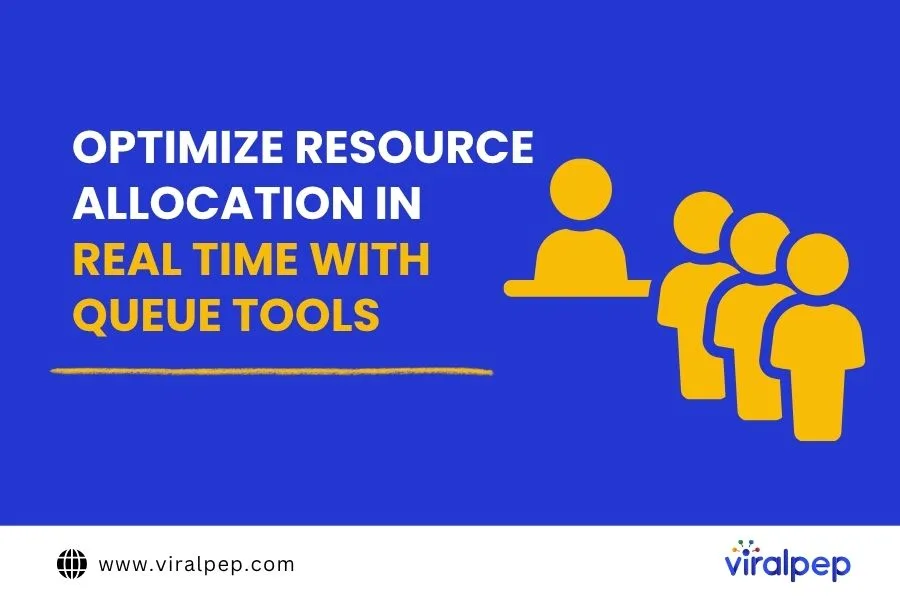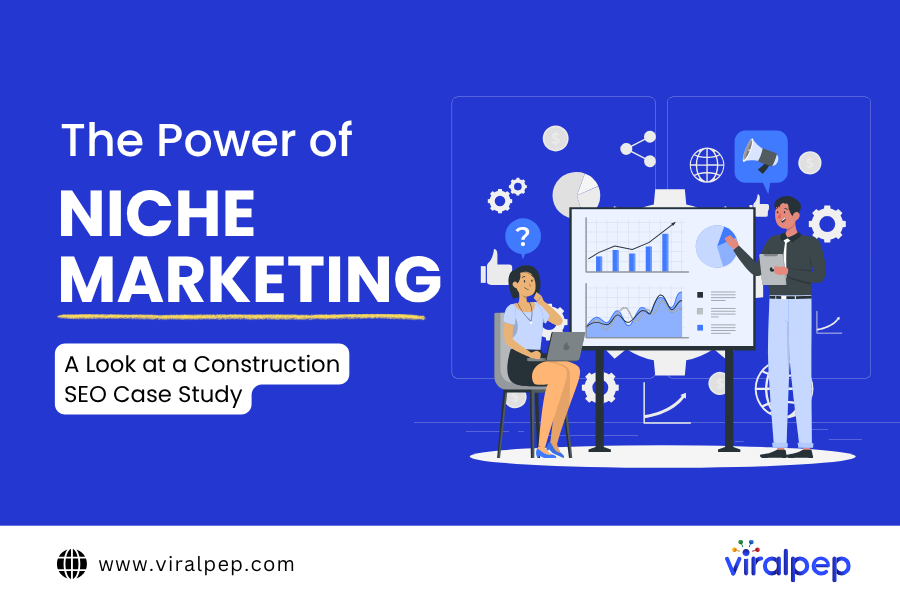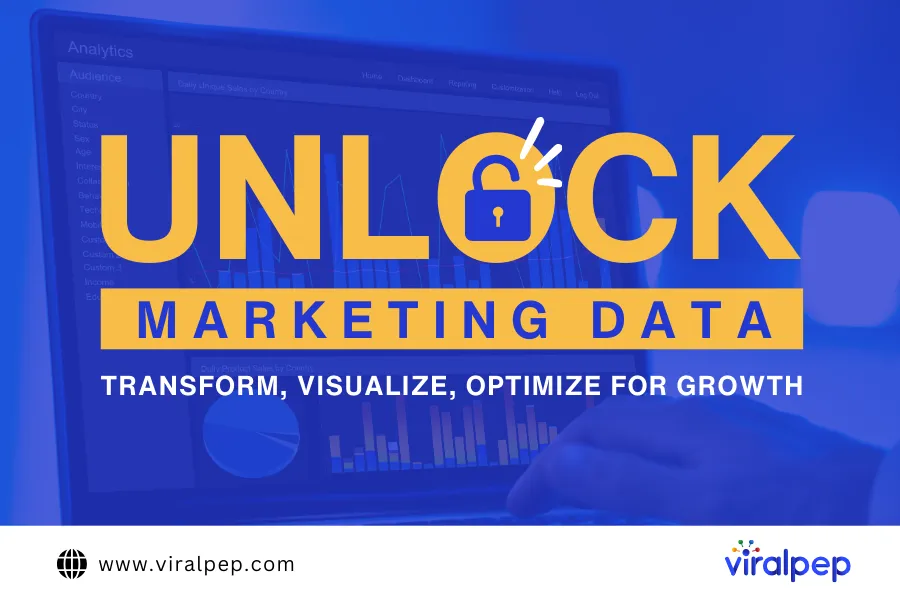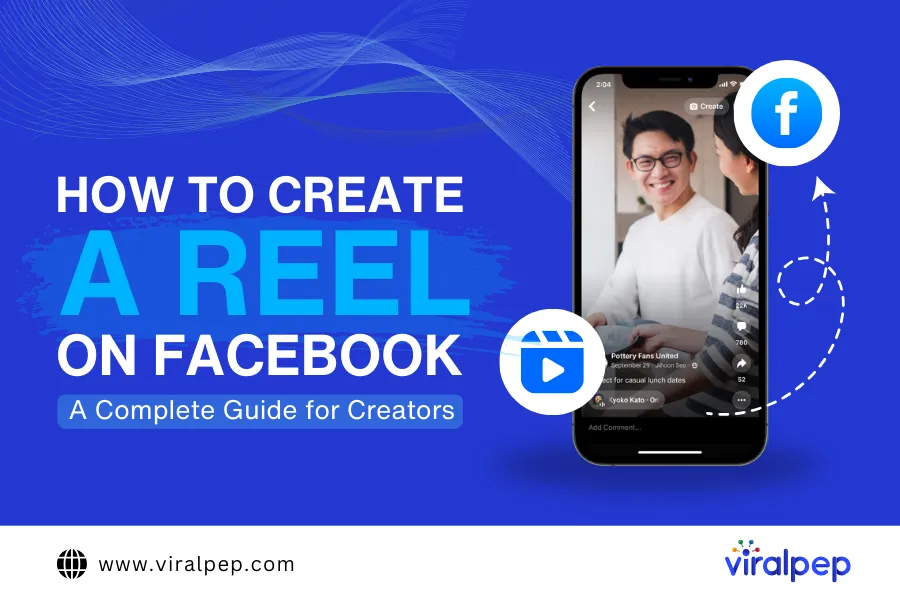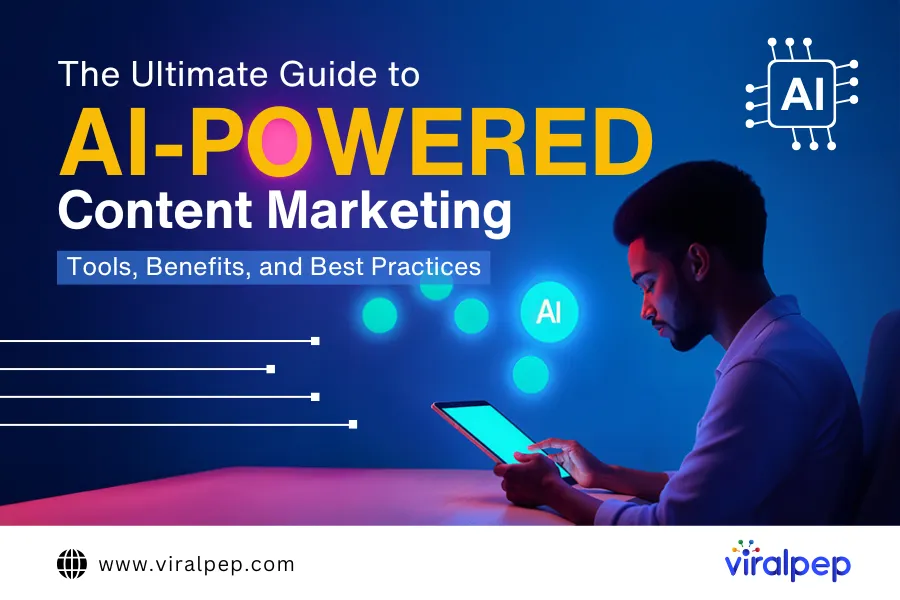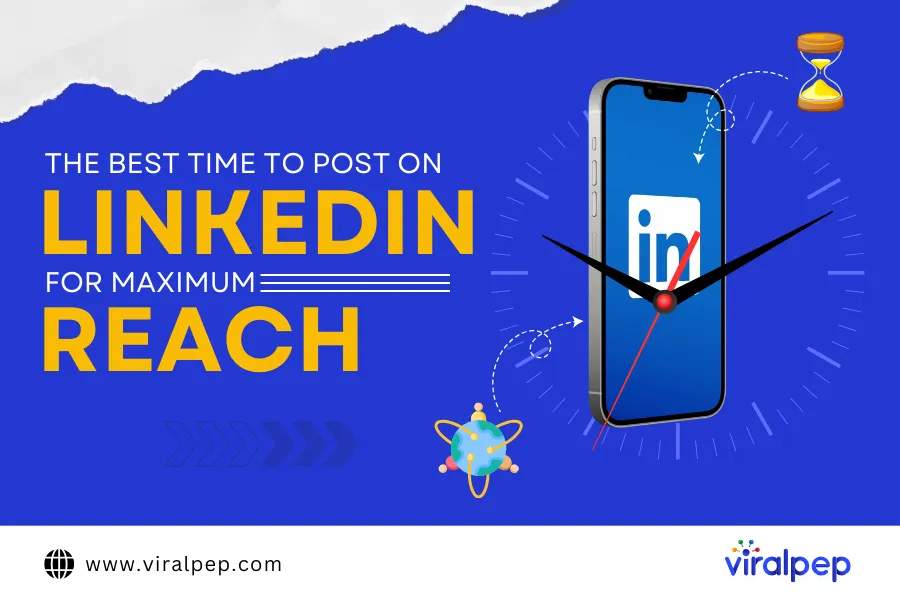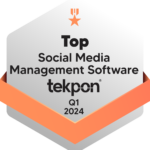Introduction
In this competitive and fast-paced digital world, you’ll come across multiple options for marketing your products or services. Two popular choices are email marketing and Facebook ads, which provide you with effective ways to reach and engage your target audience.
But the main question: Which strategy is right for your business? How do they stack up against each other? Which one should you choose to maximize your marketing efforts and boost your business?
To make it easier, we have crafted an article that depicts the key differences between email marketing and Facebook ads to help you make an informed decision. Whether you’re a seasoned marketer or a business owner navigating the complex world of online advertising, understanding the differences and advantages of these two strategies is crucial for making informed decisions.
What is Email Marketing?
Email marketing is a digital marketing strategy that allows you to send commercial messages or promotional content to your multiple connections via email. It’s one direct form of marketing that will enable you to easily communicate with your target audience, build relationships, and promote their products, services, or brand. Utilizing a newsletter platform can streamline the process, making it even more efficient and effective.
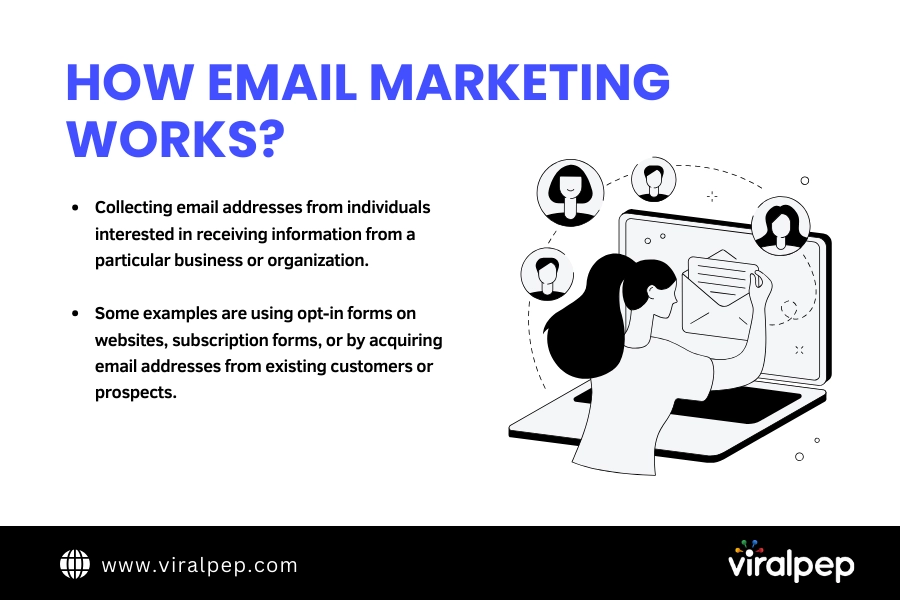
What is Facebook Ads?
Facebook Ads is an advertising platform provided by Facebook that allows businesses and individuals to create and run targeted ad campaigns on the Facebook platform and its related properties, including Instagram, Messenger, and the Audience Network. These advertisements can take various formats, including images, videos, carousels, slideshows, and more, allowing businesses to showcase their products or services in a visually engaging manner. These advertisements can take various formats, including images, videos, carousels, slideshows, reel you’ve watched and more, allowing businesses to showcase their products or services in a visually engaging manner.
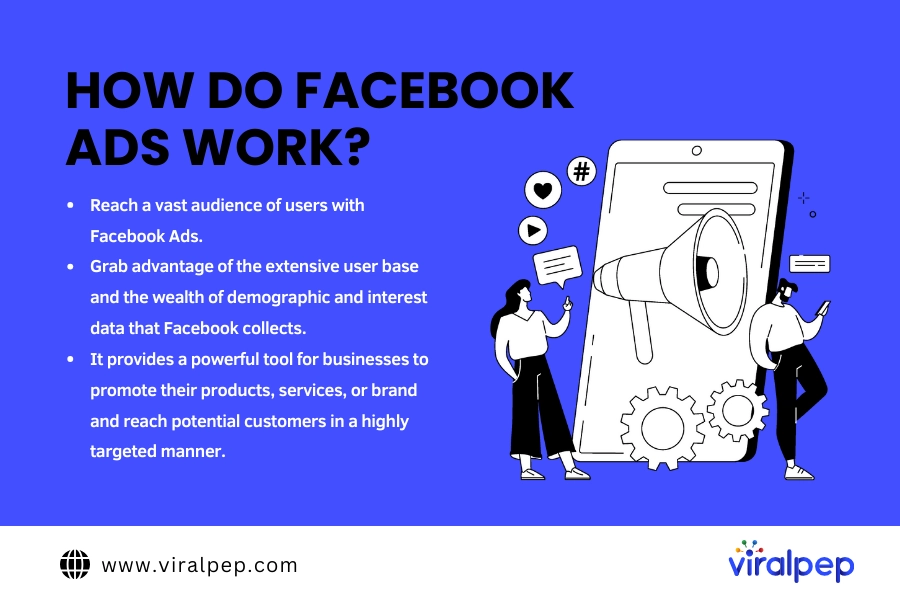
Facebook Ads vs Email Marketing: Detailed Comparison
Let’s deep dive into the exciting world of Email Marketing and Facebook Ads, including strategies for effective organic Facebook marketing, uncovering the strategies to propel your business to new heights in today’s competitive digital landscape.
Reach and Targeting
When it comes to reaching, Facebook has the upper hand with its massive user base of over 2.8 billion monthly active users. Facebook ads enable you to target specific demographics, interests, and behaviors, tailoring your message to a highly relevant audience. This precision targeting can be invaluable, especially if you’re looking to target a specific niche or demographic.
On the other hand, email marketing allows you to reach an audience that has willingly provided their contact information and expressed interest in your brand. This opt-in nature of email marketing ensures that your messages are delivered to an already engaged audience with your business. While the reach of email marketing may not be as extensive as Facebook, the engagement quality tends to be higher.
Cost-Effectiveness
When it comes to cost-effectiveness, email marketing often has the edge. While Facebook ads can offer excellent targeting capabilities, they can also be more expensive, especially if you’re targeting a highly competitive audience.
With email marketing, you can reach your subscribers at a fraction of the cost, particularly if you have a substantial email list. This digital marketing strategy allows you to send regular updates and promotions without significant expenses.
Engagement and Conversion
Facebook ads excel in generating initial engagement and can be particularly effective in increasing Facebook engagement. The platform offers various ad formats, such as image ads, video ads, and carousel ads, which can capture users’ attention and drive them to take action. Additionally, Facebook’s interactive features, like comments, likes, and shares, can help increase brand visibility with social media.
However, regarding conversion rates, email marketing often outperforms Facebook ads. Emails have a personal touch and can be customized to deliver highly relevant content to individual subscribers. Studies consistently show that email marketing has higher conversion rates than other marketing channels. People tend to trust emails from brands they have subscribed to, making them more likely to purchase or take the desired action.
Relationship Building
Email marketing shines when it comes to nurturing relationships with your audience. Regularly sending valuable content, exclusive offers, and personalized messages can build trust and loyalty with your subscribers. Email marketing allows for more one-on-one interaction, fostering a sense of connection and familiarity with your brand.
Facebook ads, on the other hand, are more suitable for creating initial brand awareness and attracting new leads. While building deep relationships solely through Facebook ads can be challenging, they can be a valuable tool for expanding your reach and introducing your brand to a wider audience.
Tracking and Analytics
Both email marketing and Facebook ads provide robust tracking and analytics tools that allow you to measure the success of your campaigns smoothly. Facebook’s Ads Manager offers detailed insights into impressions, clicks, conversions, and other metrics, helping you optimize your ads and target the right audience.
Email marketing platforms also offer comprehensive analytics, allowing you to track open rates, click-through rates, and conversions. Additionally, email marketing platforms often provide A/B testing capabilities, enabling you to experiment with different subject lines, content, and call-to-actions to optimize your campaigns further.
Daily Usage
While email marketing focuses on directly communicating with subscribers via their email inbox, Facebook Ads leverage the vast user base of the Facebook platform to deliver targeted advertisements. The daily usage of email marketing revolves around managing email lists, creating engaging campaigns, setting up automation, and analyzing performance.
On the other hand, Facebook Ads require activities such as campaign setup, ad creation, audience targeting, monitoring, optimization, budget management, and A/B testing. Both channels require continuous monitoring and optimization to maximize their effectiveness in reaching and engaging the intended audience.
Click-Through Rate (CTR)
Click-Through Rate (CTR) in Email Marketing and Facebook Ads refers to the measurement of the percentage of users making the click on a specific link or call-to-action (CTA) within an email or Facebook ad, respectively.
In Email Marketing, CTR measures the success of email campaigns by analyzing the number of users clicking on a link within an email. Email marketers often include various CTAs, such as product links, blog articles, landing pages, or subscription forms. The CTR helps gauge the relevance and appeal of the email content to the recipients. A higher CTR suggests that the email content was engaging and successfully prompting recipients to act.
On the other hand, Facebook Ads employ CTR as a crucial performance indicator. It measures the rate at which users click on the ad, whether it is a link to an external website, a landing page, or a specific action within Facebook itself. A higher CTR for Facebook Ads generally indicates that the ad copy, visual elements, and targeting were effective in capturing users’ attention and compelling them to click on the ad.
Email Marketing vs Facebook Ads: The Comparison Table
| Aspect | Email Marketing | Facebook Ads |
|---|---|---|
| Reach | Limited to subscribers who have opted in to receive emails | Wider reach potential based on targeting and ad placement |
| Targeting | Limited targeting options based on subscriber data | Extensive targeting options based on demographics and interests |
| Cost | Generally lower cost per contact | Costs can vary widely based on targeting and competition |
| Engagement | Higher potential for personalized and direct communication | Lower engagement rates compared to email due to ad format |
| Conversion Rate | Typically higher conversion rates due to direct communication | Conversion rates can vary based on ad quality and targeting |
| Content Format | Primarily text-based with limited visual elements | Supports various formats, including images, videos, and carousels |
| Customer Relationship | Supports ongoing communication and relationship building | Limited interaction beyond ad interaction and landing page visit |
| Tracking and Metrics | Provides detailed metrics on open rates, click-through rates, etc. | Offers metrics on impressions, clicks, conversions, and more |
| Lifecycle Marketing | Effective for nurturing leads throughout the customer lifecycle | It can be used at different stages of the customer lifecycle |
| Dependence on Platform | Relies on an email service provider or marketing automation tool | Relies on the Facebook Ads platform and its policies |
| Regulation | Subject to email marketing regulations (e.g., CAN-SPAM Act) | Subject to Facebook’s advertising policies and guidelines |
Email Marketing vs Facebook Ads: Who’s the Ultimate Winner?
The effectiveness of Email Marketing versus Facebook Ads depends on various factors, including your specific goals, target audience, industry, and budget. Both channels have their advantages and can be effective in their own right.
Ultimately, the “ultimate winner” between Email Marketing and Facebook Ads depends on your specific circumstances and objectives. It’s important to test and evaluate the performance of each channel, monitor key metrics, and adapt your strategy accordingly to achieve the best results for your business.
In conclusion, while both Facebook Ads and Email Marketing offer distinct advantages, integrating them strategically within your marketing strategy can yield powerful results. By harnessing the visual storytelling capabilities of Facebook Ads in Reels and leveraging the personalized approach of email marketing, you can engage your audience across multiple touchpoints and drive meaningful interactions that ultimately lead to business growth.
FAQs
Which one is more effective: email marketing or Facebook Ads?
The effectiveness of email marketing versus Facebook Ads depends on various factors, including your specific goals, target audience, and industry. Both channels have their advantages. Email marketing allows for direct communication and personalized messaging, while Facebook Ads provide extensive targeting options and broad reach. Using both in a coordinated marketing strategy to maximize results is often beneficial.
Which channel offers better audience targeting capabilities?
Facebook Ads provide extensive audience targeting options based on robust user data, allowing advertisers to target audiences based on demographics, interests, behaviors, location, and more. In contrast, email marketing targeting may have limited granularity due to the reliance on voluntary user-provided information.
What are the costs associated with email marketing and Facebook Ads?
Email marketing and Facebook Ads have varying costs. Email marketing entails fees for an email service provider (ESP) and potentially additional charges based on subscriber or email volume. On the other hand, Facebook Ads employ a bidding system, with costs influenced by audience size, ad placement, targeting choices, and industry competitiveness.
Which channel provides better conversion rates?
Conversion rates can vary depending on various factors, such as the quality of your email list or the effectiveness of your Facebook Ad campaign. However, research suggests that email marketing has higher conversion rates than Facebook Ads. This could be because email marketing targets an audience that has already expressed interest or has an existing relationship with the business.
Can I integrate email marketing with Facebook Ads?
You can integrate email marketing with Facebook Ads to create a more cohesive and effective marketing strategy. For example, you can use email lists to create custom audiences for Facebook Ads, allowing you to target your email subscribers with ads on Facebook. Conversely, you can also use Facebook Ads to promote your email newsletter or capture leads for your email list.
Which channel is better for building customer relationships?
Both email marketing and Facebook Ads can contribute to building customer relationships, but email marketing is particularly effective in this regard. Email allows for personalized and direct communication, enabling businesses to nurture relationships, deliver valuable content, and engage with customers on a more personal level. However, Facebook Ads can help increase brand awareness and reach new audiences, indirectly contributing to relationship-building efforts.
Are there any legal considerations for email marketing and Facebook Ads?
Yes, both email marketing and Facebook Ads have legal considerations. For email marketing, you need to comply with laws such as the CAN-SPAM Act (in the United States) or the GDPR (in the European Union) by obtaining consent, providing clear opt-out options, and respecting users’ privacy rights. Facebook Ads also have specific advertising policies that you must adhere to, including restrictions on certain content, targeting practices, and data usage.
How can I measure the success of email marketing and Facebook Ads?
Both channels offer various metrics to measure success. You can track email marketing metrics like open rates, click-through rates, conversion rates, and unsubscribe rates. Email marketing platforms often provide detailed analytics. Facebook Ads provide metrics such as reach, impressions, click-through rates, conversions, and return on ad spend (ROAS). You can track these metrics using Facebook Ads Manager or other analytics tools.


